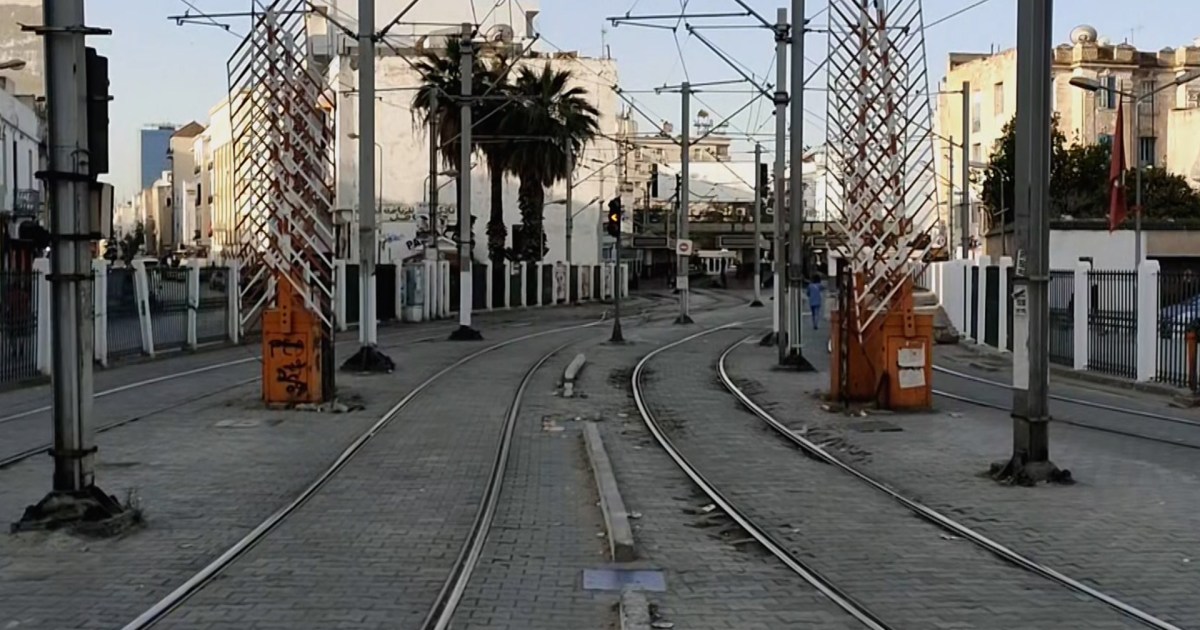The public sector strike, which began today, Thursday, paralyzed various Tunisian airports and ports, as air traffic, transport and ports were suspended, and all flights to and from Tunisia were canceled, at the invitation of the Tunisian General Labor Union, the largest trade union organization in the country, in protest against the decisions of President Kais Saied.
The Tunisian General Labor Union had called for a one-day strike in all parts of the country after negotiations with the government over the rights of workers failed, accusing the government of denial of workers' rights.
The union explained that the strike will include 195 government institutions, stressing that the reasons for this strike are mainly social, related to a number of demands, most notably the launch of wage-increase negotiations, and the abolition of a government decree that prevents ministries from negotiating with union structures without obtaining prior permission from the Presidency of the Government, denying the existence of No political background to this move.
The trade union organization held the government responsible for what it described as the unprecedented deterioration of living conditions for workers, accusing it of not seriously negotiating the demands of the strike.
Posted by The Basic Syndicate of Civil Aviation and Airports Bureau Agents Joint Trunk on Wednesday, June 15, 2022
A number of civil parties and organizations have expressed their support for this strike.
It condemned what it described as the demonization and treason campaigns that targeted him since he announced the decision to strike in public sector institutions.
On the other hand, Tunisian government spokesman Nasr El-Din Al-Nusabi confirmed that the country's financial situation cannot bear the financial cost of union demands, which exceed $300 million, according to his estimates.
He added in press statements that the government will employ a number of employees in order to secure the minimum services for citizens.
Al-Nusabi indicated that the government offered the union side to reschedule these demands and gradually resolve them.
political and economic crisis
The strike, the first for the labor union since 2018, adds a new dimension to the political and financial crises, which have intensified since President Kais Saied seized power a year ago, in a move his opponents described as a coup against Tunisia's nascent democracy.
Tensions between the union and the government have recently surfaced.
The head of the labor union said this month that the authorities were "targeting" him after the union refused to participate in talks on a new constitution to include amendments made by Said to the system of government in Tunisia.
Tunisia has been experiencing a severe political crisis since July 25, 2021, when Said began imposing exceptional measures, including the dismissal of the government, the appointment of others, the dissolution of Parliament and the Judicial Council, and the issuance of legislation by presidential decrees.
Tunisian forces consider these measures a "coup against the constitution", while other forces see them as a "correction of the course of the 2011 revolution," which overthrew then-President Zine El Abidine Ben Ali (1987-2011).
Said conducted multiple-choice online consultations on a new constitution, but they were not widely attended.
Critics described the poll as tending to achieve the results that Saeed aspires to.
Saeed aims to put the new constitution to a referendum on July 25, the first anniversary of his suspension of Parliament.
The political crisis has complicated efforts to address the financial crisis in Tunisia.
In light of this, the government is seeking to obtain a loan from the International Monetary Fund to avoid bankruptcy, and to ensure access to other external funds, as a loan from the Fund indicates the creditworthiness of a country.
The governor of the Central Bank warned that if Tunisia was unable to obtain the funds, it would face a situation similar to the one that afflicts Lebanon and Venezuela, where public finances have collapsed.

